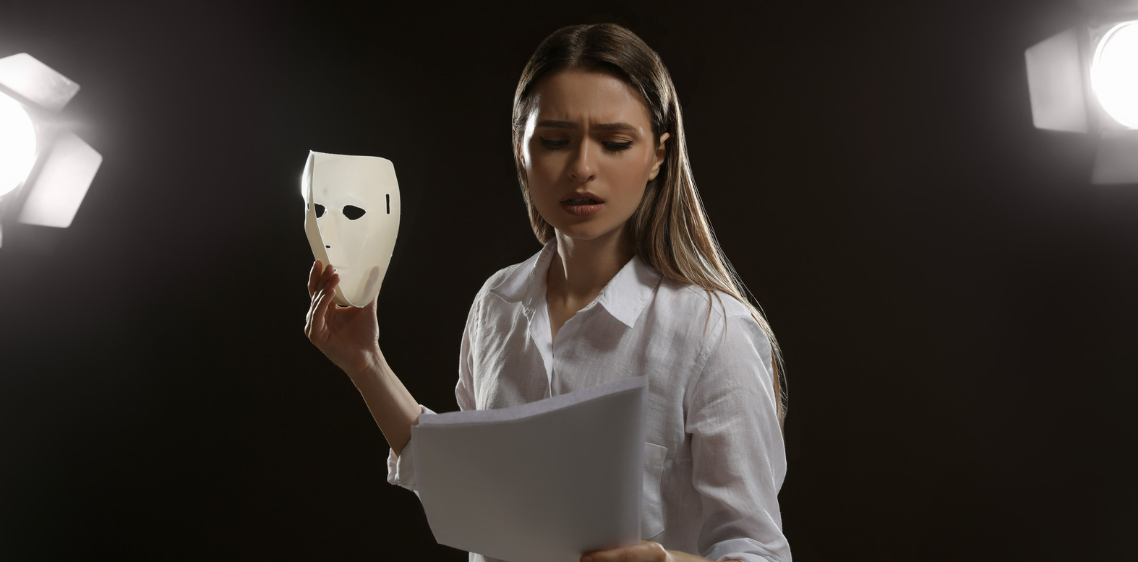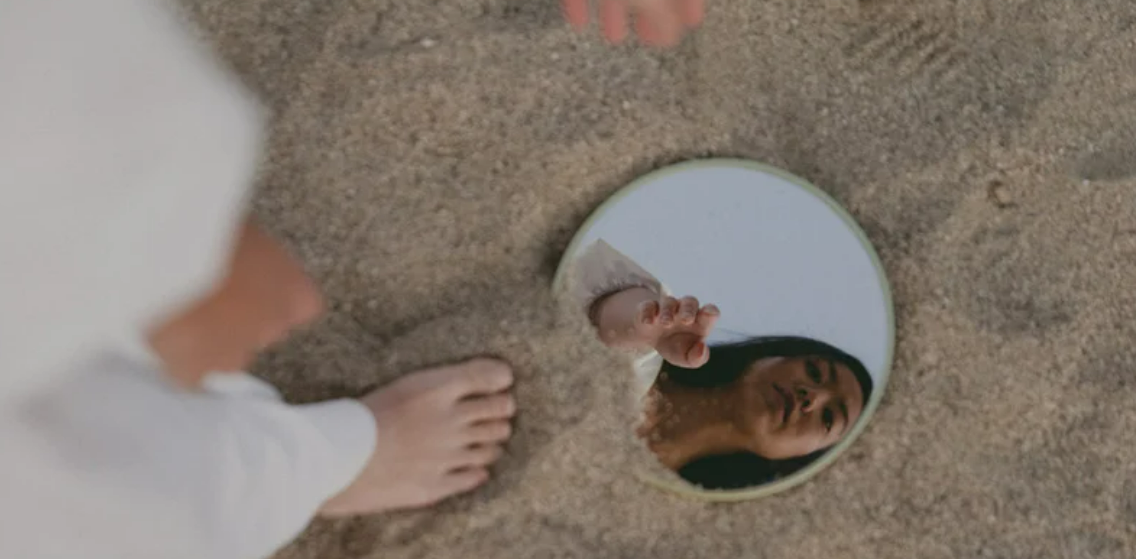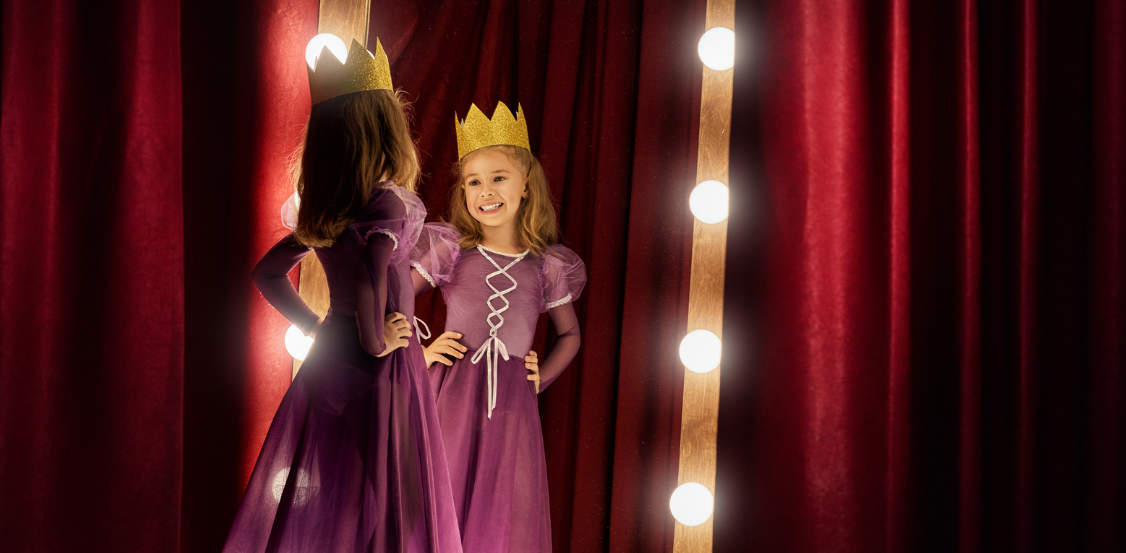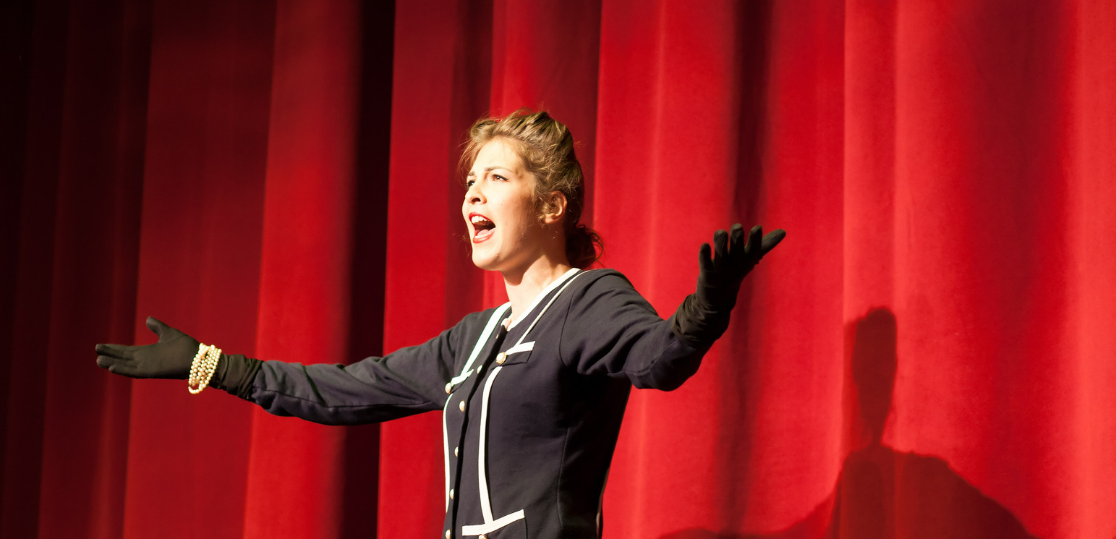Interview with Brenda Adelman
In this podcast episode, we will uncover 3 keys:
- Unveiling pivotal moments in overcoming challenges
- Extracting entrepreneurial insights
- Emphasizing the broader impact and empowerment

A Podcast Transcription
Episode 26: Actress and Coach Brenda Adelman~Transform Your Tragedy to Triumph with Storytelling!
Intro
Odiva Vasell: (00:00)
Welcome, my fabulous fempreneurs. We have an exciting time for you today. I have a special guest here, Ms. Brenda Adelman.
Brenda Adelman: (00:15)
Thank you.
Odiva Vasell: (00:16)
She is going to talk to us about her business and how she helps fempreneurs get their story out. Welcome, Brenda.
Brenda Adelman: (00:26)
Thank you. Thanks so much for having me. So glad we have met. Yes.
Odiva Vasell: (00:33)
I want to know where you started. Like, what was the motivation for you to create your business, which changed its pivoted over the years. So tell us about the pivot and how you started.
Unveiling pivotal moments in overcoming challenges

Brenda Adelman: (00:48)
Yes, well, I actually started as an actress and then I lived through something very magical. My father, who I adored, shot and killed my mother and then married her sister, my aunt. And it kind of sent me into a shutdown and a contraction and into shame and all this stuff. And a year after that happened, I got myself into an acting class again, really wanting to find joy, find a way to be in the world again. And a couple of years after that, I still was hiding behind my character, so I still was able to express myself. I thank God for acting in classes or in auditions, but I wasn’t being myself. And there was an exercise called a personal monologue. And it was about being real. And I just was inwardly guided that I had to do it. And around the same time, I was so extremely lonely because I was filled with so much shame, things like that. And I started writing in my journal at night. I wrote 100 poems in 30 days. And they were poems that were filled with rage and sexuality and all this stuff. And I would wake up the next morning and read what I wrote and be like, who is that? That’s not me. I’m nice. I’m this, I’m that. As women, we’re so taught to hold back our anger. But it was one of those poems that translated into a short scene and put up on stage in my acting class, terrified of telling my story but feeling like I was a shell of who I was without sharing it. And I didn’t know how to write dialogue and characters and things like that, so I got a standing ovation from a 100-person class. I had people come up to me and say that something in what I shared helped them heal something. And that was what gave me the impetus to expand it into a one-person show. So to not make this too long, about a year later or so, I put the full-length version of my one-woman show up in Los Angeles. And I started coaching. Well, then my dad got out of prison, and I took him to court for wrongful death from a place of self-love versus revenge, something that I had to do for myself. He only served two and a half years in prison. I just it was like an act of self-honor for me to do that. And when I did that, I rewrote the ending of my show. The first version was “Will I Ever Love and Trust Again?” I did. Fell in love again, too. And then I took him to court, rewrote the show to incorporate my forgiveness journey and the processes that I did. And I also learned some of that work in a master’s program in spiritual psychology. And so I started coaching on forgiveness because people would see the show, and they’d be like, oh, my God, you forgave this thing that seems unforgivable. And I think I did, but maybe not that he married my mother’s sister after he killed my mother. So I also learned how to take care of myself so that when I was doing emotional, when I was putting emotional, that vulnerable story out that we’re all told to do as coaches, it was very painful for me. And so what I learned over the years were practices for self-care and nurturing so that I wasn’t plopping out unhealed emotion on the audience with my shows or interviews or not saying anything. And so then I had so many people asking how I had a successful one-person show. And so I started then teaching other performers how to do a one-person show and then how to market and how to make money. And then I had so many coach colleagues who then were like, they didn’t know how to tell a vulnerable story powerfully or they didn’t know how to tell a story that made an impact. And then video came in. Were scared to death to tell video to do video, so their expertise wasn’t showing through. So then I pivoted again and I started teaching storytelling for entrepreneurs for impact and video confidence.
Odiva Vasell: (05:09)
Wow, there’s a lot to unpack there, but I’m going to just give an overall. From what I’ve understood is that you had this horrific, indescribable childhood experience. And with the upbringing, as many of us women have, we were supposed to be good, and we’re supposed to suppress these feelings and try to, I guess, honor the other person rather than honoring our own self-feelings. I found you found some healing through acting and then writing. You were journaling. And some of the stuff that came up wasn’t even recognizable. And you started to do these plays which healed other people and helped them learn how to forgive. And finally, you realized that, okay, I have a real purpose and a passion here. Now, still, you have all this other stuff happening in your life, in the background, but you are still growing. You were still creating boundaries. And then you now have pivoted to not just the forgiveness business, but the tell-your-story business for entrepreneurs.
Brenda Adelman: (06:37)
Yes. And I just find it so freeing for my clients. And because I’m so out with my story, I do attract a lot of people who have unfortunately been living with secrets. Like that thing you’re saying, like, we’re protecting other people. We’re not fully expressing ourselves. We’re not taking chances. So, I attract a lot of people who have had these big things in their lives that they’ve lived through, you know, suicides in the family. Some of them have attempted it themselves and stopped or being abused when you’re a child, like so many things. I always say that my heart breaks and then it breaks open because I know what’s on the other side of that pain. I know what’s on the other side of smallness. And so in my program and with my clients, I’m holding a space for them to be the truest version of themselves. And the reason why it’s so important, the storytelling aspect, is because when I felt the most depressed in my life was when I didn’t know anybody lived through something that I did. And so all these amazing women and men have stories, and when they’re sharing it, there’s a ripple effect because I’m teaching about forgiveness, setting healthy boundaries, but they’re teaching about other stories of resilience sense.
Odiva Vasell: (07:48)
So knowing that you’re not alone is a key factor to the healing and getting away to express it by acting. So how could you stumble upon acting? Was this a high school thing?
Extracting entrepreneurial insights

Brenda Adelman: (08:09)
I was so fortunate. Everyone should look at where their interests as adults come from. My mother started taking me to Broadway shows when I was three years old. I lived in Brooklyn. We would go into Manhattan. I was like her best buddy. And so I saw real greats when I was a little, tiny girl, like Carol Channing singing “the Diamonds Every girl’s best friend…” and Ethel Merman and Danny Kaye. And I saw Fiddler on the roof. And I remember seeing I think it was Fiddler on the Roof as a little girl, and he has his whole family in there. And then we would go to the back, love the movie, go to the backstage door to meet the act. And I remember meeting one of the daughters who was supposed to be, like, 13, and it was like a woman of 30. And that was magic to me, that you could be any age, anybody, and you step on stage, and there’s just magic. So while I definitely teach storytelling on video because it’s so important, there’s something so special also about that stepping on stage in person. And it’s a different way of presenting.
Odiva Vasell: (09:14)
Yes, and I just have to say, like your energy is so powerful and so magnetic. And I know you that in your business, we have that in common, the visibility factors. Just like women need to get more visible in their businesses, in their lives, in their power. Stepping into their power, that’s a mission that we both share. And how do you take that woman who is just we always call it a confidence issue, but it’s more than that. That woman who is just literally in hiding, and she does not want to show up on the virtual stage because of fears. How do you get that out of her or get her through that?
Brenda Adelman: (10:04)
I have a four-part method, the soul story method. And the second part is overcoming your emotions because on the surface, it’s visibility, but it’s the emotional component underneath. So a lot of us have been in families where it was safer to be invisible.
Odiva Vasell: (10:25)
Yes. Seen, not heard.
Brenda Adelman: (10:28)
To be seen, not heard there in my household, there were scary things going on, so I would be quiet. So it’s like really looking, being courageous enough to look at what’s underneath it. And then for me, if I was helping a client and this came up, I would probably say, you’ve got to do inner child’s work because you have to be that mother or father who wasn’t there for you and be that for yourself at the age you are now and just love yourself, know that you’re safe. Because everything I teach was part of my journey. So I remember doing a show, my God, over ten years ago now, my one-woman show. I’ve had a lot of success with it, but this was probably like, the third time I had put it up. And I was working with a director, and we’d be rehearsing and rehearsing, and I’m a trained actress. And I remember her saying in rehearsal almost the week we were opening, she’s like, “Louder. You have to be louder in that first part. You have to be louder.” And I know how to share from my diaphragm. And I couldn’t do it. And then the day before we opened, she said, “I know what it is. The first part of your show is when you’re sharing about being a little kid. And you didn’t have a voice then,” and it was like a light bulb went off. I literally went to the dressing room, and I had a talk with my inner, like, seven-year-old, and I was like, “This is going to be so much fun. We are owning the stage. I got you. We get to express ourselves.” So literally just changed my thoughts, and then it was fine, and then I was loud. So it’s an inner process with getting the skills. Other people are afraid to be visible because they’re so afraid to be judged. But again, that’s self-love. Well, it’s getting the skills. And self-love, get the skills so you can be confident, but also self-love because you are going to get reviewed. There are going to be people who say things about you. I remember years ago having someone, and my hair was not as well done as it is today, those of us with curly hair. But I remember someone in my inbox saying, you know, I like what you have to say, but your hair is so unprofessional. And I remember being really taken aback by that and going to my coach, and my coach was like, “F that, blah, blah, blah.” I looked at the person’s profile, and she had a cartoon. And I’m like, well, so here’s someone being, what is it, a backseat quarterback or whatever it’s called, telling me what I shouldn’t do when they’re not being visible. And then I was in a group that week, and there was this beautiful woman who said she came in. She was a coach for Christian women, I believe, and in one of her videos being visible, she was wearing a cut-off for a workout. And someone was like, “You know, that’s not right. You shouldn’t be dressed like that.” And this was a woman who had lost, like, 80 pounds and was finally feeling good about herself, and if she wasn’t with other people who could support her, she would have shut down. So that’s why it’s really important for us to speak up and be like, it’s like a boomerang. Let those people have the judgment and have it go back to them and don’t take it off.
Odiva Vasell: (13:40)
And you brought up an important point. I mean, first of all, you had to deal with your inner child, and sit down and have a talk with seven-year-old Brenda and say, “Hey, we are acting here. We love you, but you now have a voice. So let’s release it. Let’s get the volume up out of that diaphragm and speak out.” And then you are dealing with women who have, and yourself, who have the courage to be visible. And then someone just steps in there and says, “You shouldn’t do this and you shouldn’t do that.” And I just want to address that. Oh, I sometimes I don’t even watch television because there are so many shoulds and shouldn’ts. They are not direct all the time. But I call it death by a thousand paper cuts. You get on a TV series and you see this beautiful actress start stepping into her power. And then someone tells her, “Oh, you need to change this about yourself or your body.” And there’s the jokes. And yes, while they are jokes, they start the programming. Like women today, and generations before us, have been surrounded by this program of everything that we should be, forgetting that we’re all different and unique. Like, what would happen if we were all clones and robots and had the exact same figures? What a horrible thing to even imagine.
Emphasizing the broader impact and empowerment

Brenda Adelman: (15:19)
Oh, I know. I saw recently my fiancé and I started watching a lot of European shows. And it’s interesting because in European shows, you have people of all ages, all weights. In America, I’m not taking anything away from the gorgeous people who are on television, but all of the cops, let’s say, are these gorgeous 20 year olds, which is not what real life is. And yeah, so if you stand there comparing yourself or like a few years ago, and it still happens now on social media, you can be comparing yourself to someone even, let’s say you’re the same age, but that person has put filters on or gotten a lot of work done, but so much with filters. You don’t even know how many filters there are going on with selfies, but also with video. That’s why it’s about self-love. It’s like just loving yourself and getting out of comparison. Be uniquely you.
Odiva Vasell: (16:18)
Yes. One of my mottos. And that’s why I have a heart for women who are multicultural and who speak different languages. Like instead of us looking at them and saying, “Oh my goodness, she has a strong accent,” or “Oh my goodness, she made an English mistake.” No, “Oh my goodness, you are bringing it in a second language.”
Brenda Adelman: (16:44)
I know. That’s amazing.
Odiva Vasell: (16:46)
Not many of us can do that. So that’s quite amazing.
Brenda Adelman: (16:49)
I always talk about courage, the courage especially like when I think about immigrants when they come to this country and they’re having to do everything start your life all over again and then have another language on top of it.
Odiva Vasell: (19:03)
Yeah. And it’s hard. And I mentioned to you before, I lived in Japan, I lived in Italy, and just changing the brain in order to receive a whole new language, it’s a process. It’s quite a process, a humbling process. And I found myself voiceless for a while and almost felt kind of handicapped not being able to do for myself because I couldn’t communicate my needs. When I went to the parking lot or I went to the bank, I couldn’t communicate. So that’s where my journey started, because I realized, “Hey, I was this powerful woman. I had this voice. I’ve been through my own traumatic experience, and now I’m shutting up because I don’t speak the language.” No, no, no. I can put two words together and get it out there and let them know that I am here and I need to be respected. I will do that.
Brenda Adelman: (18:05)
And so that’s interesting. It reminds me of because both of our clients are online business owners. And I have seen so many people who are rock stars in real life or in another business, and then they start their new business and give their power over to gurus, coaches, or someone else. And I’m not saying you can’t learn something, but then go within or get access to someone who actually sees you so that they can communicate with you. But don’t forget who you are because it’s something new. You have so many life experiences to bring to the online business. Even if you’re learning tech or you’re learning to do video.
Odiva Vasell: (18:49)
Yes. Don’t let that stop you. And it’s amazing. Yeah. Like you said, some people, they’re in this rock star position, and they’ve created something amazing. And then all of a sudden, it’s like, I don’t know what to do. And that’s okay. You’re going to learn. You’re going to learn. So it’s humbling. But it’s okay to be humble and start with the baby steps.
Brenda Adelman: (19:11)
Yes, we all did. I was just saying I didn’t take a stage all by myself in front of hundreds of people on day one and have it be a sold-out show. I started in baby steps in class and then doing open mics and then working on it, and then doing a 30-seat theater and then a 60.
Odiva Vasell: (19:39)
Yeah. And patience. And patience is part of the journey in entrepreneurship. That’s of the journey that I struggle with, but being patient and knowing that it comes step by step.
Brenda Adelman: (19:52)
Yeah.
Odiva Vasell: (19:57)
And I was I had mentioned to you before that I’ve worked with these women who are rock stars in their corporations. I mean, they did everything to get on the top of their game, engineers and scientists and developers. And then they get into a meeting, which is predominantly men. And also, these men are native English speakers, and they are not. And they stay silent. And it breaks my heart, you know what I mean?
Brenda Adelman: (20:31)
My hands on them. Yeah. Hopefully, they’re listening. Some of them are listening here. And, you know, it is a journey. So here’s the thing, too. Don’t ever beat yourself up. If you’re one of those people who’ve been silent, just know it served you probably in the past to be silent. And now we are breaking the system up, and we are taking the power back.
Odiva Vasell: (20:56)
Women together. And I just feel your rock star energy. And I just want to rock out with you.
Brenda Adelman: (21:05)
I know. So fun. I’m so glad we met.
Odiva Vasell: (21:07)
Yeah. We just magnetized each other, literally.
Brenda Adelman: (21:09)
Exactly.
Odiva Vasell: (21:12)
I’m going to put all the contact information for you. And I just want to thank you. Thank you again for being here with me today and sharing your story, which is going to impact so many women, and how you’ve turned that around into your power your energy, your beauty. Yeah.
Brenda Adelman: (21:44)
I mean, that’s the whole thing. When we unleash our story and no longer have it be a secret. There is so much energy that has been locked in there that is then unleashed so that you can use. To spread your message, change people’s lives, grow your business, you know, spread your message, change people’s lives, grow your business.
Odiva Vasell: (22:08)
Thank you again, Brenda.
Conclusion
In wrapping up, we’ve delved into a narrative rich with themes of transformation and entrepreneurial tenacity. The journey from silence to success serves as a compelling reminder that the entrepreneurial path is not just about business strategies but a profound exploration of self. As you reflect on the insights shared, consider how your own journey can be shaped by resilience, authenticity, and the unwavering belief in the power of your unique story. May this narrative inspire you to embark on your entrepreneurial endeavors with newfound courage and a deeper understanding of the transformative potential within your personal and professional evolution.